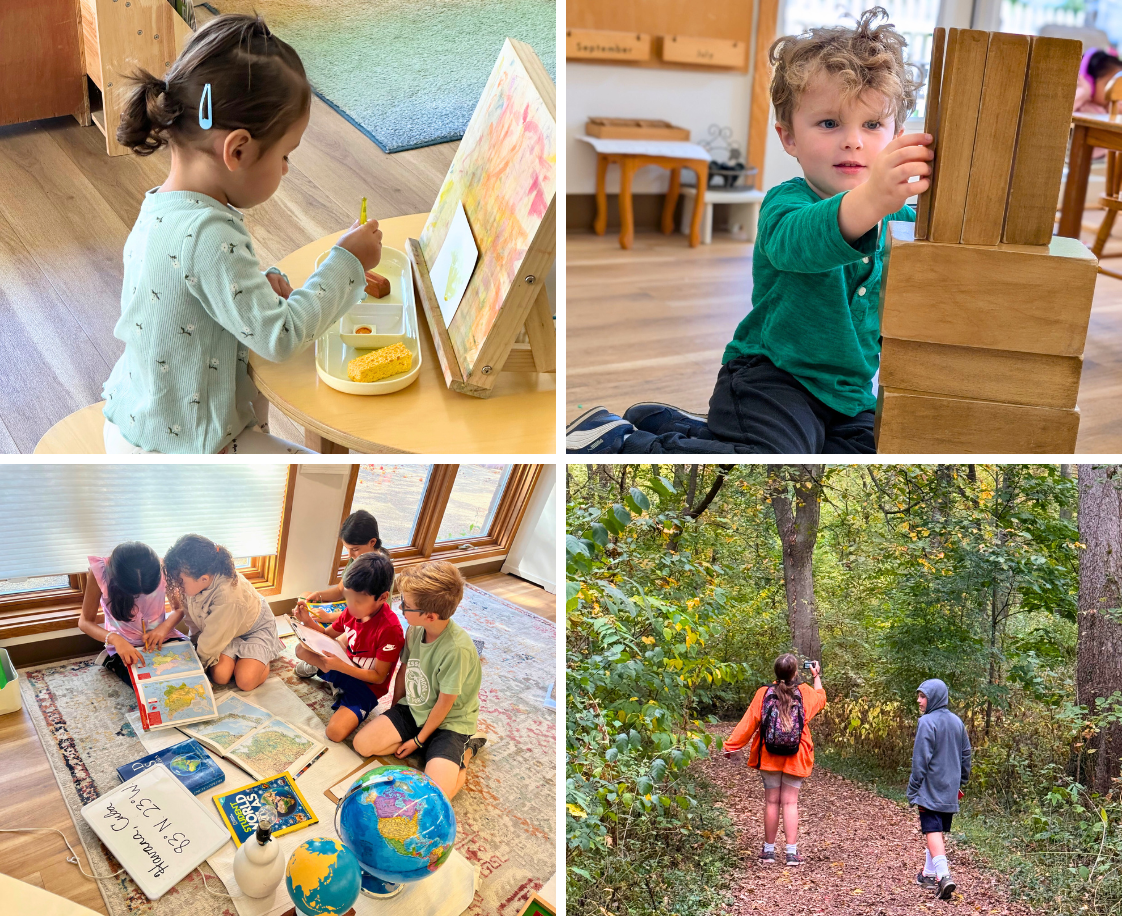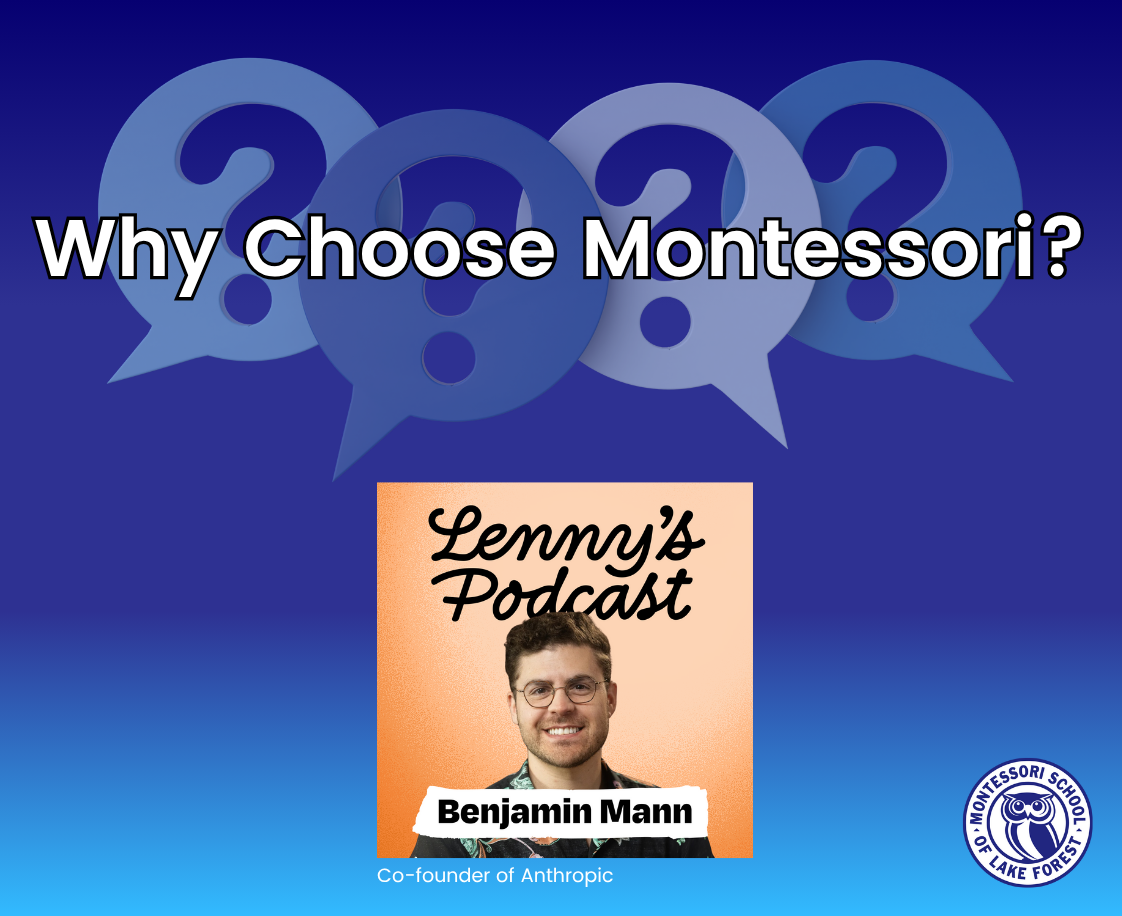
While pregnant and waiting for a new life to come into this world, I, like most mothers- to-be, realized my life was going to be very different after the birth of my child and felt certain this new little being would bring much change.
The change started even before my son was born. A friend gave me a Montessori book to read while pregnant in the hopes that I might be interested in exploring Montessori education for my son. At the time, the most I knew of Montessori was that it was a day-care choice for some working parents…hardly what it really is! I read the book and wished that my own learning path had started with Montessori.
My journey started with reading a book and has blossomed. As my son grew older and neared school-age, I explored various pedagogies: public schools, private schools, Waldorf and Montessori. After doing thorough research on them all, I found myself coming back to Montessori full of resolve, and made the informed decision to enroll my son in Montessori school for primary and elementary.
While I was a stay-at-home parent after working many years in the corporate world of human resources, I also pursued service work by teaching Sunday school classes and found I really enjoyed working with children. At the same time as my son enjoyed his Montessori education and I planned my re-entry into the workforce, I found myself drawn to a career in education, exploring various programs until Montessori, with its focus on the whole child, resonated the most for me, too.
I was fortunate enough to find an Assistant position at MSLF, which allowed me to experience the Montessori learning environment to determine if becoming a Montessori educator was the path for me. I found myself in a beautifully-prepared Montessori environment within MSLF. This was an invaluable gift before I pursued formal Montessori training.
At that time, I was torn between Primary and Elementary training. After working as an Assistant in Elementary, I knew Elementary was the place for me; it allowed me to meet the children within the broadest range of ages, from 6 to 12, while aiding the children’s potential as they develop the faculties of their mind and imagination. I was also drawn to the interconnectedness of the lessons in Elementary and how the curriculum is so interrelated. Teaching a lesson in history might involve geography, biology and language and this appealed to me.
I began my Elementary Summer training in Milwaukee, commuting over three summers to and from Milwaukee. I found myself among a cohort of people from all over the world each with various Montessori and life experiences, yet all of us drawn to what Maria Montessori had written over a century earlier!
Since I have been in the classroom, it has been a gift every day to be with the students. As much as we teachers work to prepare our rooms and lessons, the students in return give so much back to us through the look of excitement in their eyes or changes in their facial expressions when they truly understand something they previously thought was hard, discovering for themselves that through efforts and persistence they can master hard things.
As I reflect on Montessori’s life, she too experienced so many hard things and much change in her lifetime: a female doctor in Italy, pioneer in education, World War I, exile from her home country, and World War II, to name a few of her life experiences. Yet through it all, she continued to believe in the potential of children and humanity. What drew me to Montessori was the deep belief in humanity and the vision of the potential of human beings, especially children.
I owe a debt of gratitude to my son who has indeed changed the course of my life in so many unexpected and welcomed ways. I am also grateful to MSLF as well as the many families over the years who have also believed in Montessori and this community. This quote drew me into Montessori and it still applies more than 60 years later:
“Times have changed, and science has made great progress, and so has our work; but our principles have only been confirmed, and along with them our conviction that mankind can hope for a solution to its problems, among which the most urgent are those of peace and unity, only by turning its attention and energies to the discovery of the child and to the development of the great potentialities of the human personality in the course of its formation.” (From the foreword to “The Discovery of the Child”, 1948)
Finally I owe a debt of gratitude to my friend who gave me the Montessori book, as well as to so many people who have supported me along the way, and finally to Maria Montessori for having the courage and perseverance to forge this path for us to follow in our love of humanity and children.
— Mary Taylor, January 2015
The post Teacher Spotlight – Mary Taylor, Lower Elementary appeared first on Montessori School of Lake Forest.



